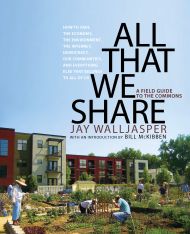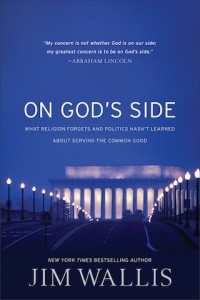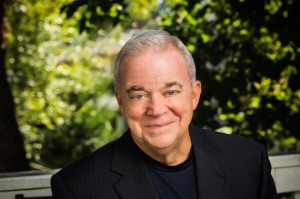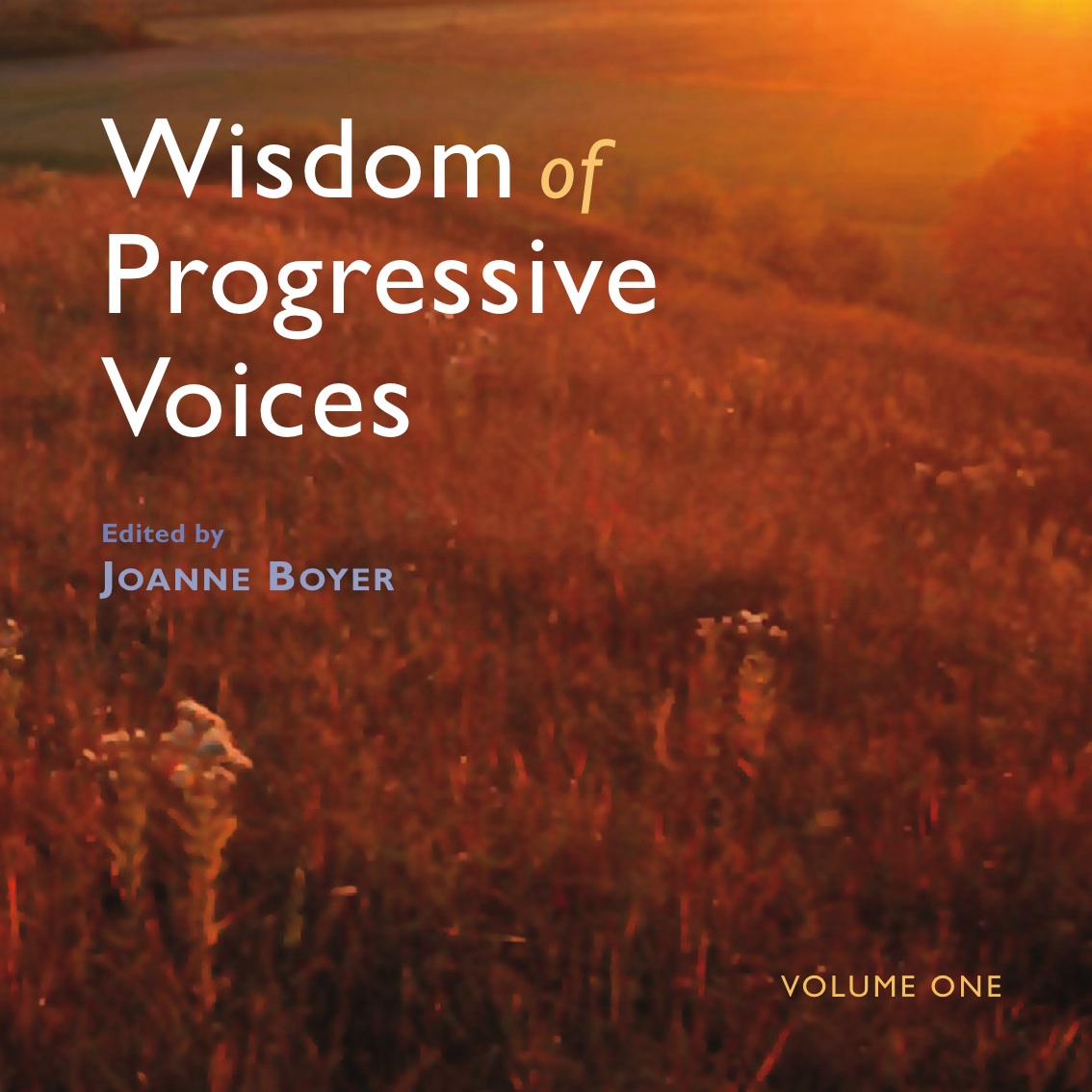Jim Wallis, author and editor of Sojourner’s magazine, was in town last week to speak on his latest book On God’s Side: What Religion Forgets and Politics Hasn’t Learned About Serving The Common Good. Although Mr. Wallis looks a tad older (don’t we all) and a bit overwhelmed with where our country’s political and social state is, his hopeful message remained the same: We are all interconnected; we are all each other’s neighbor; and it’s time we recommit to an ancient idea: the common good.
The common good. I wondered again why it is that people stumble over what the definition of that is. It was the fabric of my youth and adult life. Public parks, public schools, public libraries, public works departments. We made attempts to take care of everyone. We worked at making a place at the table for everyone. Sure, you had friends who had their lake cottage, but I had the public swimming pool and picnics at the public beach on Lake Michigan.
Wallis, an evangelical, acknowledged that many people define the term “common good” in different ways. He includes in his book one of his favorite definitions from Catholic social justice teaching: “The common good is the whole network of social conditions, which enable humans and groups to flourish. All are responsible for all.”
Or phrased yet another way: The common good benefits the community. It is the welfare of the whole community, as the proper object of a just law. It is distinguished from individual good, which looks only to the good of a single person.
Try it another way, which is the ancient golden rule to which Wallis refers: Do unto others as you would have them do unto you. “We have broken our social contracts,” Wallis told his audience. We are hungry for a new social contract. Inequality damages our way of life and life today in the United States is dramatically unequal. We need to inspire the ideal of the common good because life today is unfair, unsustainable and it is making us unhappy.”
He stressed the need to broaden our definition of that famous question the lawyer posed to Jesus of Nazareth: Who is my neighbor? “We need to ask, who is my poor neighbor? Who is my immigrant neighbor? Who is my gay neighbor?,” Wallis said.
“We need to talk about reclaiming democracy,” he added. “We need a transformational ethical view. Checks have replaced balances in Washington. But remember, the common good comes last to Washington. It’s social movements that change Washington. We need a social movement today that harkens back to the ancient idea of the common good that says our life together can be better than our life alone.” For more information on Wallis’ book and to hear Wallis in his own words, click here.
Wallis’ talk sent me scurrying back to another great book and organization that promotes the common good. If you’ve not seen the book by Jay Walljasper: All That We Share: A Field Guide To The Commons, we invite you to check it out here. As part of the organization On The Commons, Walljasper writes several thought-provoking ways to look at how the commons are defined. He answers the question of what is a commons-based society quite simply: “It is a way of life that values what we share as much as what we own.” It was the introduction to the book by Bill McKibbon that gave me pause. In it he writes:
 “If we are to somehow ward off the coming (environmental) catastrophes, we have to reclaim this atmospheric commons. We have to figure out how to cooperatively own and protect the single most important feature of the planet we inhabit – the thin envelope of atmosphere that makes our lives possible. Wrestling this key prize away from Exxon Mobil and other corporations is the great political issue of our time…The last few decades have been dominated by the premise that privatizing all economic resources will produce endless riches. Which was kind of true, except that the riches went to only a few people. And in the process, they melted the Arctic as well as dramatically increasing inequality around the world.”
“If we are to somehow ward off the coming (environmental) catastrophes, we have to reclaim this atmospheric commons. We have to figure out how to cooperatively own and protect the single most important feature of the planet we inhabit – the thin envelope of atmosphere that makes our lives possible. Wrestling this key prize away from Exxon Mobil and other corporations is the great political issue of our time…The last few decades have been dominated by the premise that privatizing all economic resources will produce endless riches. Which was kind of true, except that the riches went to only a few people. And in the process, they melted the Arctic as well as dramatically increasing inequality around the world.”
The recent environmental news – in case you missed it because they played second tier to talking points blathering on Fox News – is frightening. Recent stories told of the dying bees and the impact on the food chain; the fact that we broke a three million-year-old record for amount of carbon in the air; the reporting that those carbon emissions are eliminating an approximate 50,000 species from the planet; that homelessness will develop and has developed because of climate change; and on and on the list goes.
There can be no more dramatic example of the interconnectedness of all living things than trying to sustain life on this planet. And yet we continue to turn a deaf ear and blind eye to what is going on. We cannot say we weren’t warned. The prophetic voices have been crying out for decades. Rachel Carson. Gaylord Nelson. Bill McKibbon. Jim Wallis. Jay Walljasper. And of course Dr. Martin Luther King, Jr. who said: “We must all learn to live together as brothers or perish as fools.”



